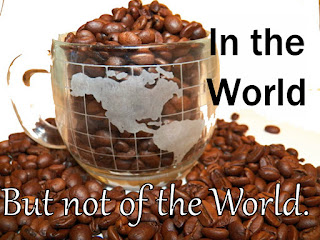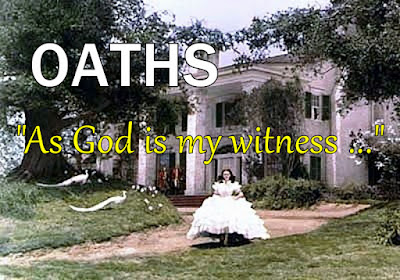HOW LONG, O LORD
Psalm 94:3-7,22-23
Romans 8:18-25
Imagine that you are a fish living in a small, peaceful pond when a pebble is tossed in by someone. You and the other residents are momentarily startled. Later, a large rock is thrown in, and you all are frightened and run for hiding where you heal from the trauma and wait for the water to grow quiet again. But what if rock after rock is being constantly thrown into the pond and the water is never calm and there is not enough time to process what is happening. You and your fellow creatures don't have time to recover and are in a constant state of anxiousness and fear.
When our lives and life in our society and world are like this, then the people of God cry out in lament, giving voice to their suffering, and ask, "How Long, O Lord?"
There is nothing new about suffering. As history and the Bible can attest, it has been around for ages, part of the human condition from one generation to the next. We can recognize ourselves and current circumstances in these stories.
The issue of suffering is complex and hard to understand. As the passage, Romans 8:18-25, reminds us, we are living in a sinful, broken and unredeemed creation. That means that until Christ comes again and returns creation and humanity to the wholeness and love of Eden, there will be suffering. That's why there are things like disease and death and broken relationships and abuse. Life happens; suffering happens.
And so: " We know that the whole creation has been groaning in labor pains until now; and not only the creation, but we ourselves, who have the first fruits of the Spirit, groan inwardly while we wait for adoption, the redemption of our bodies." (Romans 8:22-
The issue of suffering is complex because the unloving acts of harm and wrongdoing (which the Bible calls sin and evil) ripple out and affects many, including the innocent and the undeserving.
The causes of suffering inflict not only individuals but in some cases, whole communities.
Suffering occurs when a group of people are are targeted, like the oppressed people of Israel, forced into slavery in Egypt or the Christians that were persecuted in Rome. In Psalm 94, the most vulnerable in society were being victimized -- the poor and the powerless: widows, orphans and immigrants and refugees living in Jerusalem at the time.
We don't know who wrote Psalm 94 or when it was written. It may be addressing one of the many turbulent times in the history of Israel when the leadership had become corrupt and turned away from God. Or, it might have been written in that time prior to the exile to Babylon during the oppression and constant military attacks of the Assyrians. Either way, the psalmist, the writer of the Psalm 94, described a time in the nation of Israel where people were suffering as the social structure of their country was deteriorating.
Those who ruled them were arrogantly confident in their own power to do anything they wanted, their speech full of insolent, harsh and unkind words. Thinking that there would be no consequences for their actions, they acted with violence and oppression against the people, especially those who lacked power and resources, the least of these, as Christ called the most vulnerable among us. They figuratively ground the people under their heels, believing that God doesn't see or care about what they do.
God does see and hear all that is said and done to humanity whom he treasures and loves, especially those who suffer for the benefit of others. God does hear our prayers pleading for justice, and God will bring charges against those who selfishly do harm to others and openly disregard the core of God's law of love, which is Jesus taught us is:
“You shall love the Lord your God with all your heart, and with all your soul, and with all your mind. This is the greatest and first commandment. And a second is like it: ‘You shall love your neighbor as yourself." (Matthew 22:37-39)
So it is the expected intervention of God in the affairs of the world that the writer of the Psalm confidently puts his hope. As Paul wrote to the Christians in Rome,
Romans 8:18-25
Imagine that you are a fish living in a small, peaceful pond when a pebble is tossed in by someone. You and the other residents are momentarily startled. Later, a large rock is thrown in, and you all are frightened and run for hiding where you heal from the trauma and wait for the water to grow quiet again. But what if rock after rock is being constantly thrown into the pond and the water is never calm and there is not enough time to process what is happening. You and your fellow creatures don't have time to recover and are in a constant state of anxiousness and fear.
When our lives and life in our society and world are like this, then the people of God cry out in lament, giving voice to their suffering, and ask, "How Long, O Lord?"
There is nothing new about suffering. As history and the Bible can attest, it has been around for ages, part of the human condition from one generation to the next. We can recognize ourselves and current circumstances in these stories.
The issue of suffering is complex and hard to understand. As the passage, Romans 8:18-25, reminds us, we are living in a sinful, broken and unredeemed creation. That means that until Christ comes again and returns creation and humanity to the wholeness and love of Eden, there will be suffering. That's why there are things like disease and death and broken relationships and abuse. Life happens; suffering happens.
And so: " We know that the whole creation has been groaning in labor pains until now; and not only the creation, but we ourselves, who have the first fruits of the Spirit, groan inwardly while we wait for adoption, the redemption of our bodies." (Romans 8:22-
The issue of suffering is complex because the unloving acts of harm and wrongdoing (which the Bible calls sin and evil) ripple out and affects many, including the innocent and the undeserving.
The causes of suffering inflict not only individuals but in some cases, whole communities.
Suffering occurs when a group of people are are targeted, like the oppressed people of Israel, forced into slavery in Egypt or the Christians that were persecuted in Rome. In Psalm 94, the most vulnerable in society were being victimized -- the poor and the powerless: widows, orphans and immigrants and refugees living in Jerusalem at the time.
We don't know who wrote Psalm 94 or when it was written. It may be addressing one of the many turbulent times in the history of Israel when the leadership had become corrupt and turned away from God. Or, it might have been written in that time prior to the exile to Babylon during the oppression and constant military attacks of the Assyrians. Either way, the psalmist, the writer of the Psalm 94, described a time in the nation of Israel where people were suffering as the social structure of their country was deteriorating.
Those who ruled them were arrogantly confident in their own power to do anything they wanted, their speech full of insolent, harsh and unkind words. Thinking that there would be no consequences for their actions, they acted with violence and oppression against the people, especially those who lacked power and resources, the least of these, as Christ called the most vulnerable among us. They figuratively ground the people under their heels, believing that God doesn't see or care about what they do.
God does see and hear all that is said and done to humanity whom he treasures and loves, especially those who suffer for the benefit of others. God does hear our prayers pleading for justice, and God will bring charges against those who selfishly do harm to others and openly disregard the core of God's law of love, which is Jesus taught us is:
“You shall love the Lord your God with all your heart, and with all your soul, and with all your mind. This is the greatest and first commandment. And a second is like it: ‘You shall love your neighbor as yourself." (Matthew 22:37-39)
So it is the expected intervention of God in the affairs of the world that the writer of the Psalm confidently puts his hope. As Paul wrote to the Christians in Rome,
"... in hope
we were saved. Now hope that is seen is not hope. For who
hopes for
what is seen? But
if we hope for what we do not see, we wait for it with patience." (Romans 24-25)
So, we wait in hope, sure in the hope that the light and love of God will overcome all forms of sin and evil and bring an end to the suffering.
And while we wait, in Christ's name, we can make some ripples of our own that will influence the world around us.
- Continue to pray and plead the case for ourselves and others who are suffering.
- Pray, as Jesus taught us, for those who are the source of our societal justice. Asking God to bless them with the transforming love of Christ that they may be turned from wrong to right.
- Put our prayers into action through works of mercy, compassion and goodness.
"I alone cannot change the world, but I can cast a stone across the waters to create many ripples." Mother Teresa." Together in Christ, by the power of God's love, we can make millions of ripples that can make a difference in the world.
Hope in God, make some ripples of our own and be confident that in the midst of trouble, pain and suffering, that God through Christ is always with us.
"Do you think anyone is going to be able to drive a wedge between us and Christ’s love for us? There is no way! Not trouble, not hard times, not hatred, not hunger, not homelessness, not bullying threats, not backstabbing, ...
None of this fazes us because Jesus loves us. I’m absolutely convinced that nothing—nothing living or dead, angelic or demonic, today or tomorrow, high or low, thinkable or unthinkable—absolutely nothing can get between us and God’s love because of the way that Jesus our Master has embraced us." (Romans 8:35, 37-29, MSG)




Comments
Post a Comment